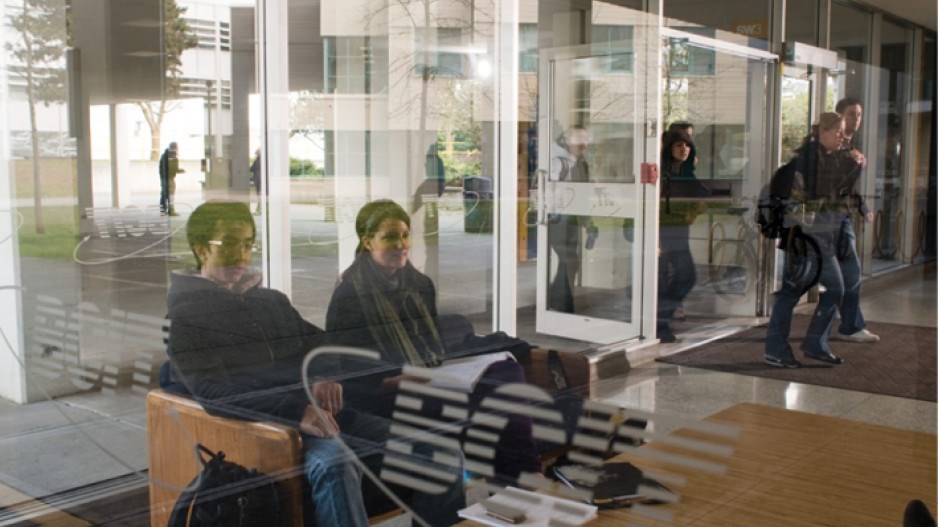For years, the relationship between post-secondary institutions and B.C. businesses – the ones hiring all those new grads schools were churning out – could be frustrating and non-collaborative, recalls Kevin Davis.
“The perspective [from schools] used to be, ‘Here’s what we’re developing, so here’s what you get,’” the director of strategic partnerships at Canadian Manufacturers and Exporters British Columbia (CME BC) said.
“Now there’s a lot more collaboration saying, ‘We don’t need what you’re selling us, so you need to adapt.’”
But Canada has been very slow to adapt compared with the rest of the world.
A PwC report released April 30 revealed that Canadian business leaders lag behind their counterparts in other countries in collaborating with post-secondary institutions. The study found 14% of Canadian businesses reach out to schools to gather ideas for solving business problems, while the global average is 17%.
But that number jumps to 48% in the U.S. and 54% in the U.K.
Davis said employers in his industry aren’t reluctant to partner with post-secondary institutions. They’re simply unaware of the opportunities to do so, especially on the West Coast, which lacks Ontario and Quebec’s massive infrastructure.
“Typically the manufacturers in B.C., because they’re on the small side … they’re not sophisticated in these ways.”
Davis added there has to be a push from both schools and employers when it comes to “matching ability and appetite.”
He said high school students are starting to realize that there’s more potential for employment and high wages studying a trade like welding than acquiring a university degree in English.
The B.C. government is also banking on that trend. The province announced April 29 it was allocating $160 million of its annual $7.5 billion education budget to train both K-12 and post-secondary students for jobs in the proposed liquefied natural gas industry. Within four years, annual funding for B.C.’s Skills for Jobs Blueprint is pegged to reach $400 million.
While no energy companies have made any final investment decisions, Victoria forecasts the industry will create 100,000 direct and indirect jobs in B.C. if five LNG facilities are built in the next decade. One of the program’s three main goals is to develop stronger partnerships between industry and labour to deliver training for high-demand jobs.
Veronica Madore, manager of corporate and industry training at the B.C. Institute of Technology (BCIT) School of Business, said collaboration between the business community and educational institutes has to be a shared responsibility.
BCIT approached CME BC in 2012 to gauge the challenges facing the labour force and develop a program to address those issues.
While workers had all the technical skills required, there was a significant gap in the soft skills – such as conflict resolution and time management – needed for employees promoted to supervisory roles.
“There are really only so many trade positions available out there. General degrees are not the ticket to a job,” Madore said.
She added that specialized skills – especially in leadership – are becoming increasingly important in the B.C. economy.




